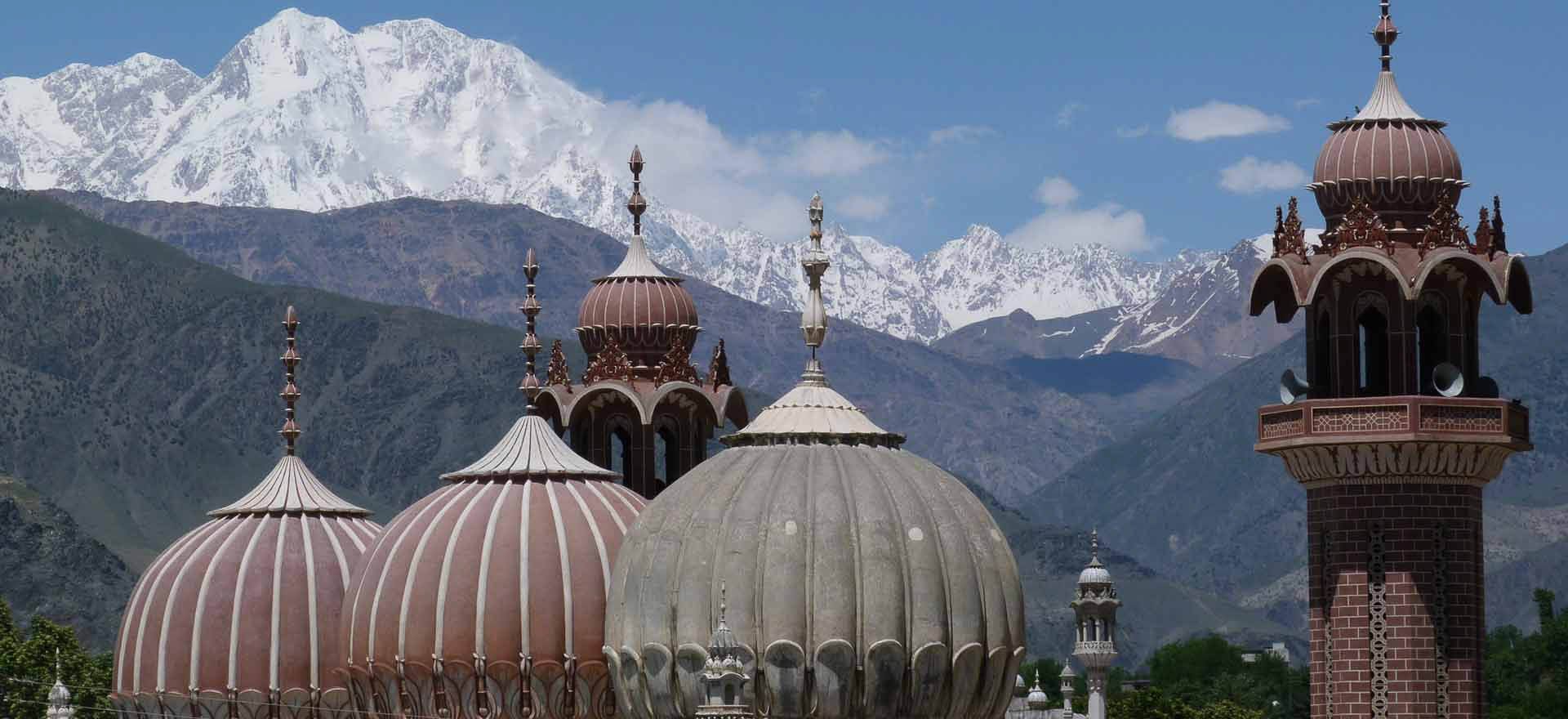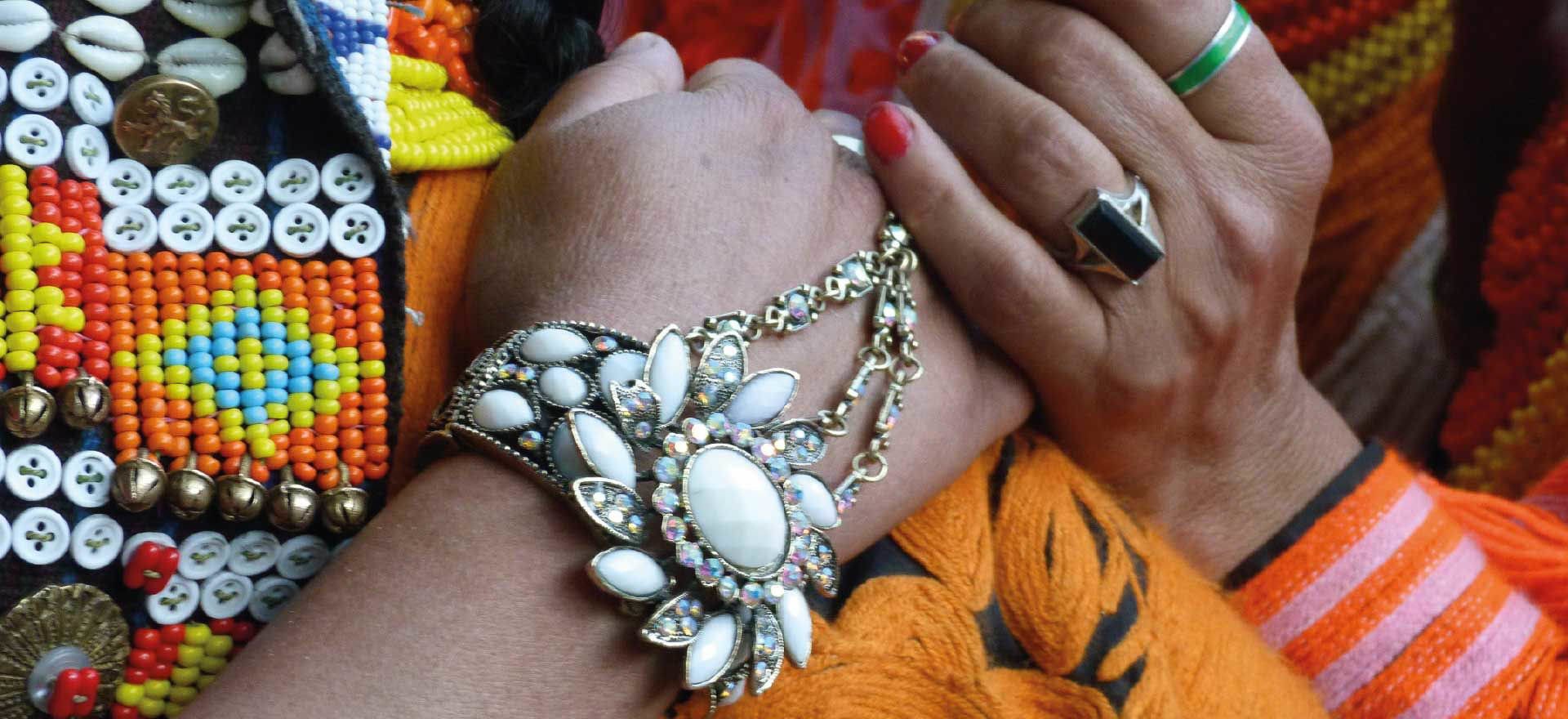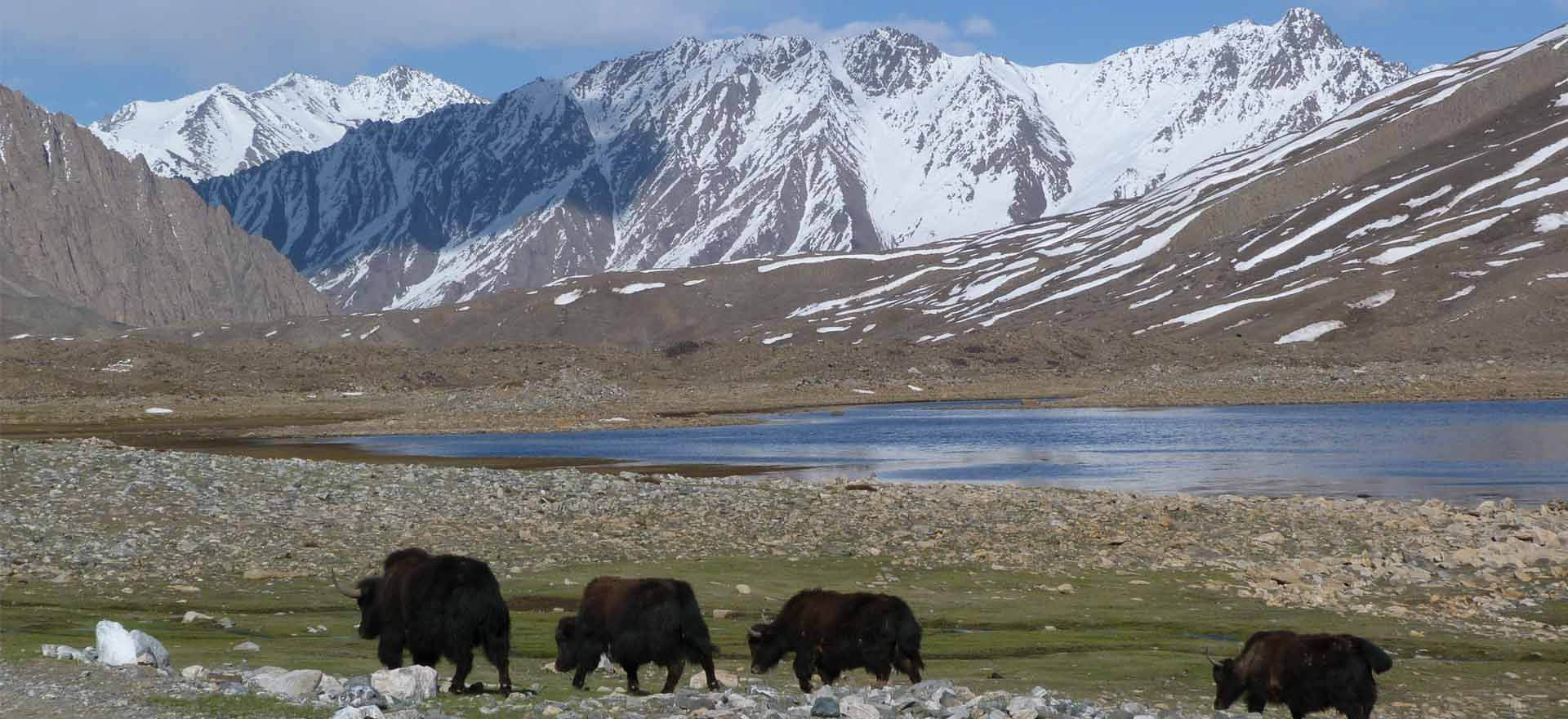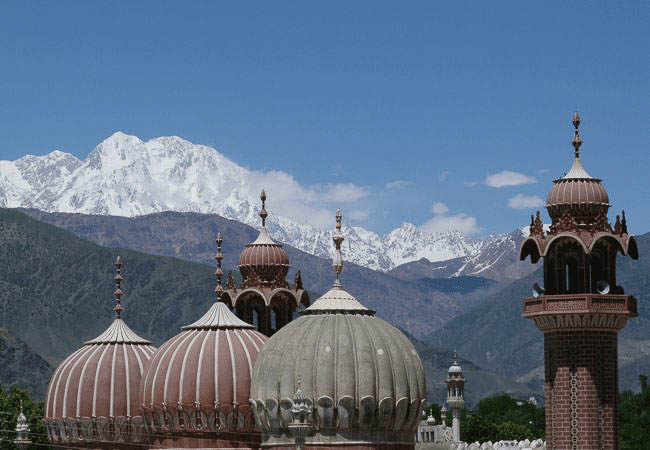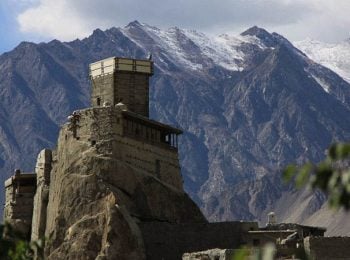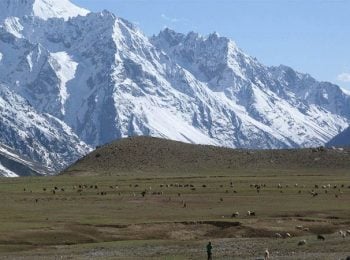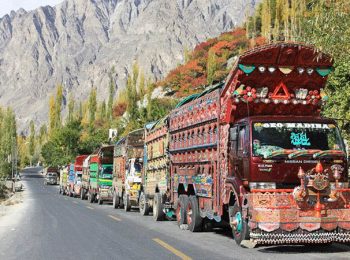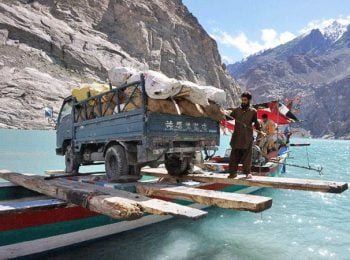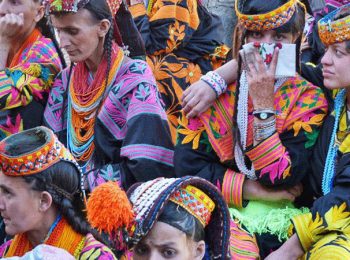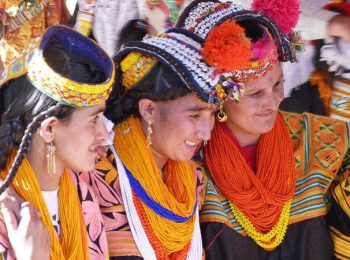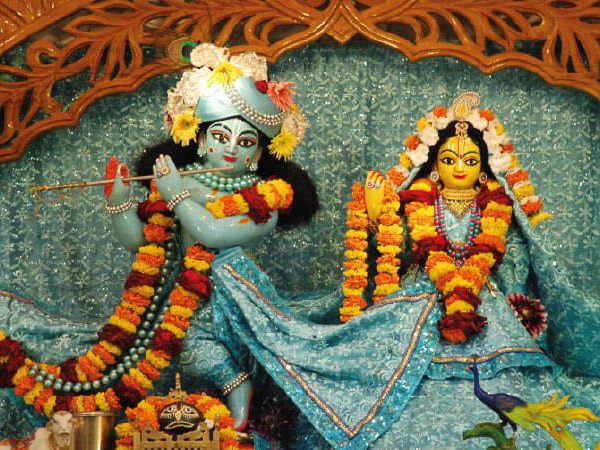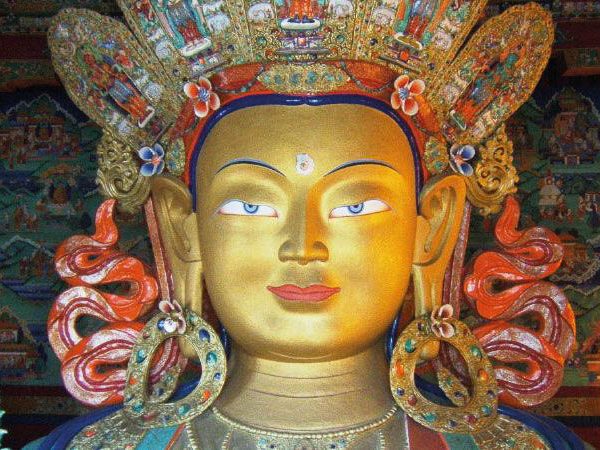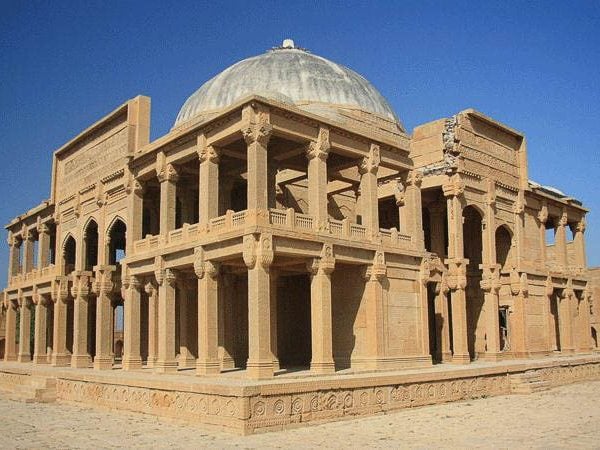Day 1 - Islamabad
Arrive in Islamabad and transfer to your hotel. Depending on time of arrival, there may be time to explore the twin cities of Islamabad and Rawalpindi. We wander among Rawalpindi’s many varied bazaars and visit the imposing Shah Faisal Mosque, situated at the foot of the Margalla Hills. This mosque is one of the largest in the world with room for 15,000 worshippers inside and 85,000 in the courtyard. Overnight Envoy Continental or similar.
Day 2 - Takht-e Bhai – Mingora
We start our journey north, heading to the city of Mingora. We stop on the way at the Gandharan monastery of Takht-e Bhai, which dates back to the 1st century AD. Overnight Shelton Hotel or similar. (BLD)
Days 3-5 - Kalash Valleys
Drive north to the Kalash Valleys, arriving in the afternoon of Day 3. The Kalash are a ‘pagan’ tribe believing in the old gods, known to the outside world for their vibrant traditions and very unlike the other ethnic groups of Pakistan. Legend says that they are the descendants of four Greek soldiers of Alexander’s army. The women wear black robes and a skull-cap decorated with sea shells and coins. We visit the valleys of Birir, Rambur and Bamburet to see unique cattle houses, ancient deities and picturesque villages. Our tour has been timed to coincide with the local festival of Uchal to see some of the Kalash’s incredible cultural traditions. Overnight guesthouse. (BLD)
Day 6 - Chitral - Mastuj
Day 8 - Gilgit - Hunza Valley
Drive to Gilgit, once an important city on the Silk Road and a significant place with regards to spreading the Buddhist religion throughout Asia. From here continue to Karimabad, in the Hunza Valley. On the way we have excellent views of Rakaposhi and Ultar peak, stopping for tea at a viewpoint to see Rakaposhi in its all glory from its summit to its glaciers. Other stops en route include the rock-carved Buddha at Kargah and the colourful bazaars at Gilgit. When we reach Karimabad, we will be surrounded by peaks towering above 7000 metres. Overnight Karakorum View Hotel or similar. (BLD)
Day 9 - Hunza Valley
Spend the day exploring the Hunza Valley. Head to Duiker to see the sunrise over magnificent snow-covered peaks including Ultar (7388m), Rakaposhi (7788m) and Diran (7266m). After breakfast at Duiker, visit Altit and head to the Hoper valley on the eastern side of the Hunza River, a predominantly Shia Muslim area. Here we visit one of the world’s fastest moving glaciers leading down from the Karakorum Mountains. Return to Karimabad where we visit the impressive Baltit and Altit forts. Overnight Karakorum View Hotel or similar. (BLD)
Day 10 - Khunjerab Pass
Travel to the Khunjerab Pass, the highest point on the Karakorum Highway, at an elevation of 4733m. The pass boasts lush green meadows and frozen lakes, and is a habitat for numerous species including the snow leopard. Return to Karimabad in the afternoon. Overnight Karakorum View Hotel or similar. (BLD)
Day 11 - Skardu
Day 12 - Skardu
Spend the day exploring Skardu and its surrounds, including the Manthal Buddha Rock, an important relic of Buddhism dating back to the 8thcentury. We also visit the high-altitude desert of Katpana with its huge sand dunes. Also known as the Cold Desert, Katpana sits at 2226m above sea level and is one of the highest deserts in the world. Overnight Hargis Hut or similar. (BLD)
Day 13 - Deosai Plateau - Tarishing
Day 14 - Naran
Day 15 - Taxila – Islamabad
Explore the archaeological site of Taxila, an early centre of Buddhism, and continue to Islamabad for the evening. Overnight Envoy Continental or similar. (BLD)
Day 16 - Islamabad
Transfer to the airport for departure. (B)
Please note that our May departures follow a slightly different itinerary, and include Lahore – please contact us for details.
This trip can be combined with our ‘Ladakh and Kashmir’ tour for a comprehensive journey through the region. See full details of our ‘Ladakh and Kashmir’ trip here.
Optional Pre-Tour Lahore Extension
Day 1 - Lahore
Arrive in Lahore and transfer to the hotel. Overnight Shalimar Tower Hotel or similar.
Days 2-3 - Lahore
Two full days to explore Lahore. Visit its key sights including the Lahore Fort, Wazir Khan Mosque, Badshahi Mosque, Shalimar Gardens, Anarkali bazaar and the tomb of Jahangir, among others. We also take an excursion to the Wagah border to see the unusual ceremony that occurs each day, when the Indian and Pakistani guards close the border. Overnight Shalimar Tower Hotel or similar. (B)
Day 4 - Islamabad
Drive to Islamabad visiting the 16th century Rohtas Fort along the way. Overnight Envoy Continental or similar. (B)
Day 5 - Islamabad
Spend the day exploring Islamabad. Please note that day 5 of the Lahore extension becomes day 1 of the main tour. See the above itinerary for details. (B)
Optional Post-Tour Peshawar Extension
Day 1 - Peshawar
Take the train from Rawalpindi to Peshawar, travelling through northern Punjab and the province of Khyber Pakhtunkhwa (formerly known as the North West Frontier Province). On arrival, visit the Qissa Khani bazaar, known as the bazaar of storytellers and once an important point on trade routes connecting India and Central Asia. Overnight Fort Continental Hotel or similar. (B)
Day 2 - Peshawar
Day 3 - Islamabad
Day 4 - Islamabad
Transfer to the airport for departure. (B)
What's included?
What's not included?
Visas
All travellers will require a visa to enter Pakistan, which must be obtained before travel. Visa regulations can change however and so we recommend that you contact your nearest embassy for the most up to date information.
Health and vaccinations
We are not medically qualified and so we recommend that you speak to your doctor or nearest health professional for advice concerning recommended vaccinations. For more advice on vaccinations, you can also visit www.fitfortravel.nhs.uk.
If you have any physical limitations that might impact your ability to participate in the planned tour activities, it’s essential that you make us aware as soon as possible so that we can discuss this with you.
Insurance
It is a condition of joining our tours that you have suitable travel insurance in place, and we cannot accept travellers without insurance. All policies differ in terms of what they will cover, but as a minimum you need medical and health cover, which will cover you for the whole time that you are away. Most policies will also include cancellation cover, which will cover you if an unforeseen circumstance obliges you to cancel your trip. We recommend that you obtain your insurance as soon as you book your trip.
Please note that government travel warnings often affect the validity of your travel insurance, and you should check this with your insurance company.
Money
The local currency in Pakistan is the rupee. British pound sterling, US dollars or Euros are all fine to bring for exchange purposes.
It’s not difficult to change money in Pakistan, either at banks or the hotels and your guide can assist with this. There are a good number of ATMs in Pakistan, although once you get further off the beaten track don’t count on there being any, or the rare ones that there are, to be properly working. For this trip, it is best to change money in Islamabad.
Local conditions
When travelling to some of the destinations we offer you need to bear in mind that things won’t always work here as we’re used to them working at home. Travelling in underdeveloped and untouristed destinations requires both patience and a sense of humour. There may be problems with infrastructure, attitudes may be different, and maintenance may not be as high a standard as we would always like, but this is very much part and parcel of travelling in such a place. We aim to resolve any issues as quickly as possible, and thank you for your patience.
Travel advice
We keep a very close eye on the travel advice issued by the UK Foreign and Commonwealth Office so that we can keep you up to date with any warnings. At the time of writing the FCO advises against travel to some parts of Pakistan that this trip visits.
We work very closely with our local team and are fully confident that we can operate tours safely in Pakistan. Should you have any concerns over safety please do not hesitate to contact us and we can address your concerns.
This relates to advice from the British government – other nationalities need to check the stance of their own governments.
Please note that the information contained above is highly susceptible to change, and while we endeavour to keep up to date we recommend that you use this as a guide only. Should you have any questions, please don’t hesitate to contact us.

